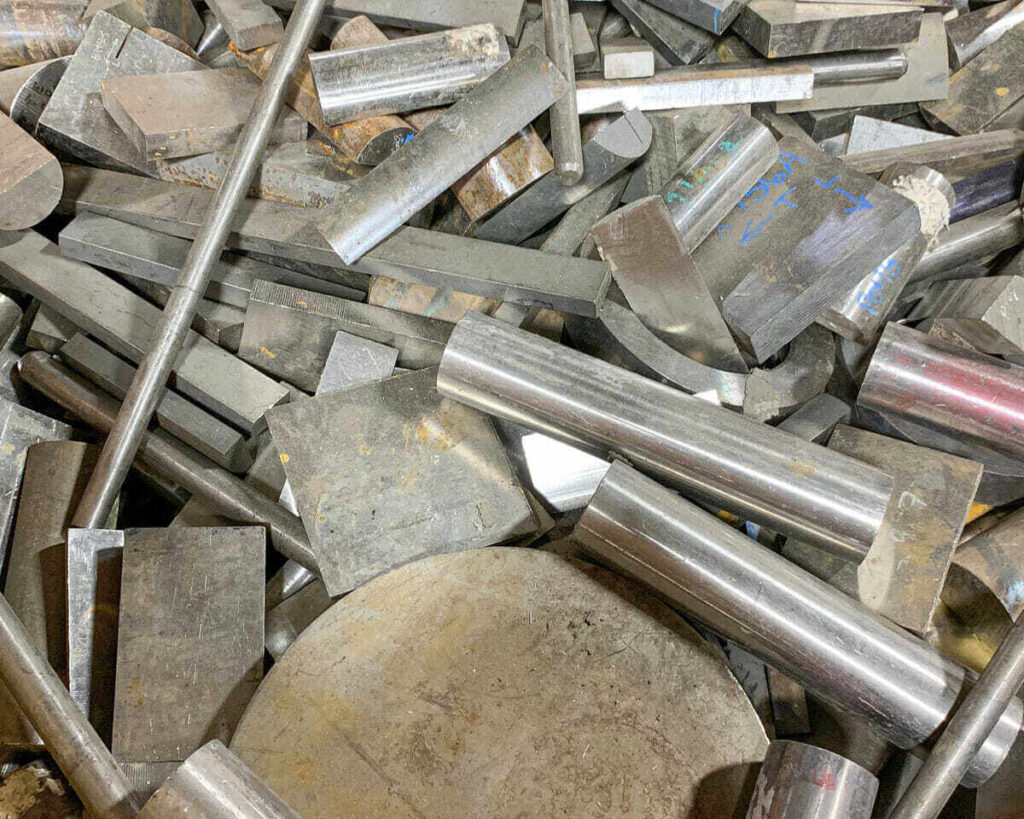In today’s fast-paced industrial world, the demand for high-performance materials continues to rise. Among these materials, titanium stands out for its strength, corrosion resistance, and light weight. However, producing titanium from raw sources is energy-intensive and expensive. That’s where titanium CP grade scrap comes into play, offering a sustainable and cost-effective solution for various industries.
What is Titanium CP Grade?
Before diving into the scrap market, it’s essential to understand what Titanium CP (Commercially Pure) grades are. CP titanium refers to unalloyed titanium, which means it is titanium in its purest form. The CP grades (Grades 1 to 4) are distinguished by the small variations in their oxygen content and, consequently, their mechanical properties.
- Grade 1: The softest and most ductile, making it easy to form and weld.
- Grade 2: Offers a balance between strength and formability and is the most widely used CP grade.
- Grade 3: Higher strength compared to Grade 2 but less formable.
- Grade 4: The strongest of the CP grades, used where strength is more important than formability.
These grades are often found in industries such as aerospace, medical, chemical processing, and power generation, where high durability and corrosion resistance are vital.
The Value of Titanium CP Scrap
Titanium is a valuable metal, but it’s also expensive to mine and process. Fortunately, titanium CP scrap can be recycled to significantly reduce costs and environmental impact. The scrap usually consists of discarded or leftover titanium from manufacturing processes, like cuttings, shavings, or even old parts.
Why is CP titanium scrap so valuable?
- High purity: CP titanium contains very little in the way of impurities or alloying elements, making it easier to recycle and repurpose.
- Energy efficiency: Recycling titanium scrap consumes far less energy than producing titanium from ore, which helps reduce the overall carbon footprint.
- Cost savings: Industries can cut down on material expenses by incorporating recycled titanium into their manufacturing processes.
Where Does Titanium CP Scrap Come From?
Titanium CP scrap is generated from a variety of sources, including:
- Aerospace industries: Titanium is widely used in aircraft components due to its lightweight yet durable nature.
- Medical field: Surgical tools, implants, and prosthetics often use CP titanium for its biocompatibility and resistance to bodily fluids.
- Chemical processing plants: Titanium’s corrosion resistance makes it ideal for use in heat exchangers and piping.
- Manufacturing waste: Excess material from machining, cutting, and fabricating titanium components.
The Recycling Process
Recycling titanium CP scrap involves several steps to ensure the material can be reused effectively:
- Collection: Scrap titanium is gathered from industrial sites, manufacturers, or recyclers.
- Sorting: The scrap is sorted based on grade and purity. Titanium CP grades must be kept separate from alloyed titanium to maintain material integrity.
- Processing: The scrap is then melted down in vacuum or inert environments to avoid contamination.
- Recasting: The molten titanium is recast into new products, whether that be ingots, sheets, or rods, which can be used in new manufacturing processes.
The Sustainability Factor
Titanium recycling contributes to the circular economy, where materials are reused rather than discarded. This reduces the environmental burden associated with mining, refining, and transporting virgin titanium. Given the rising emphasis on sustainability, recycling titanium CP scrap is a vital strategy for industries aiming to reduce their carbon footprint while still delivering high-quality products.
Applications of Recycled Titanium CP Scrap
Recycled CP titanium scrap finds its way back into various industries:
- Aerospace components: Lightweight, high-strength materials are essential in aircraft design and manufacturing.
- Medical devices: Biocompatible titanium is ideal for implants, prosthetics, and surgical tools.
- Industrial machinery: From heat exchangers to pipelines, recycled titanium is perfect for applications where corrosion resistance is key.
Conclusion
Titanium CP grade scrap is more than just waste material; it’s a valuable resource that can be reprocessed to provide high-quality titanium for industries across the globe. By recycling this metal, companies not only save costs but also help promote sustainability in a world that increasingly values eco-friendly solutions. Whether it’s for aerospace, medical devices, or chemical processing, titanium CP scrap plays a critical role in advancing modern manufacturing while conserving resources for the future.
